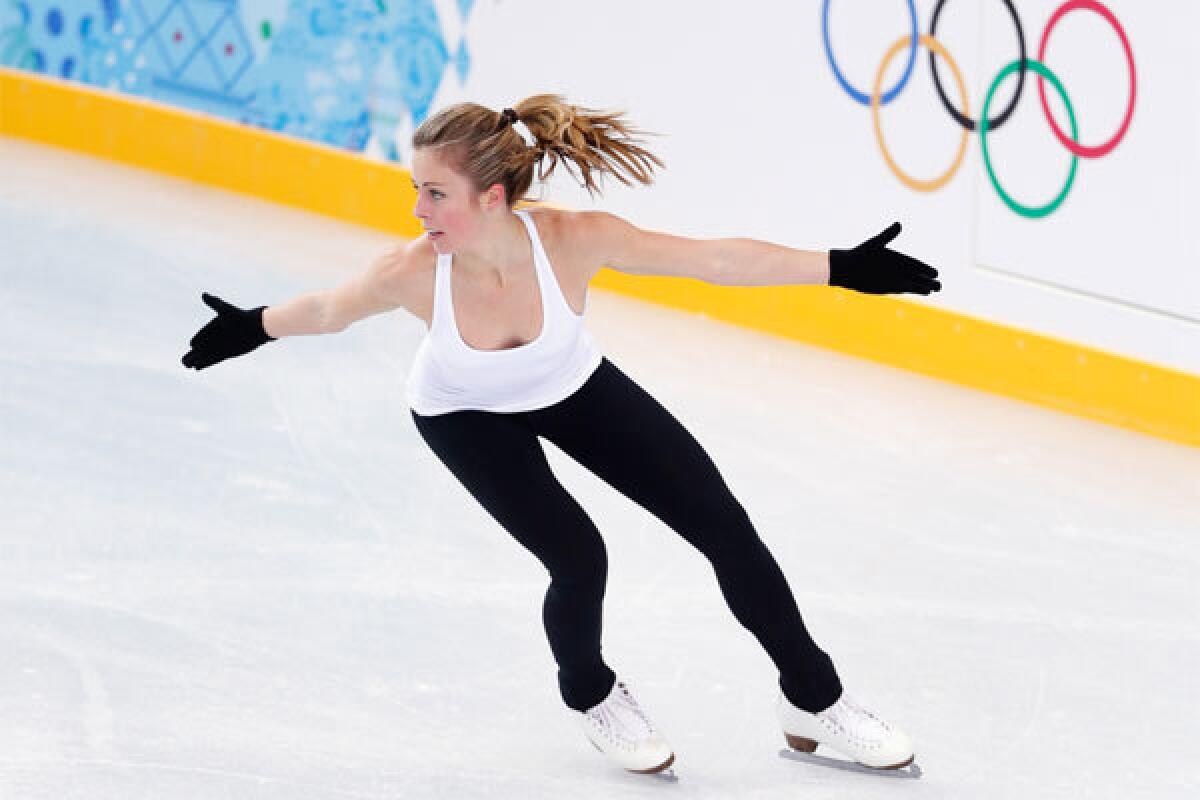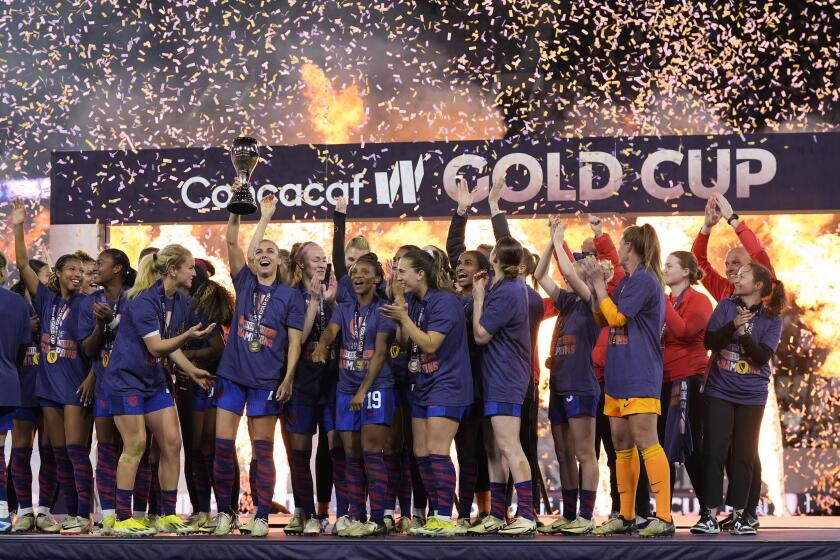Figure skater Ashley Wagner shows her true colors at Sochi Olympics

SOCHI, Russia – Ashley Wagner could not help but smile about the decor at the Olympic figure skating practice rink.
“It’s a very colorful venue ... very rainbow colorful,” Wagner noted, with a laugh, after finishing an early afternoon practice Wednesday.
The reference was to the rainbow representing support for the LGBT community, and it does seem an ironic color choice in a country that last summer adopted national anti-gay legislation.
Wagner, 22, the two-time national champion, has been one of the few U.S. athletes willing to speak out strongly and repeatedly against the law. She will not refrain from such comments now that she is in Russia.
“It doesn’t matter where I am, it’s still my opinion,” Wagner said. “I stand by what I’ve said before. I am an athlete here at the Games; there is only so much I can do. I just believe in equality for all.’’
Wagner might have chosen to back off her commitment to making those points given her need to regroup after a poor performance left her fourth at last month’s U.S. Championships. Since then, she has turned herself inside out for the Olympics, in which her first competitive effort is to be a short program Saturday in the team event.
“I feel like I am a completely different skater,’’ she said.
The team event begins Thursday with the men’s and pairs short programs. Although the women’s lineups have not been announced, it is expected that new U.S. champion Gracie Gold will replace Wagner for Sunday’s free skate. The women’s singles begins Feb. 19.
Wagner 2.0 includes a return to last season’s free skate program, a totally different approach to training under coach Rafael Arutunian and a slightly lighter body.
“Before, I would kind of tell Raf when I was being pushed to my limit and then he would back off,” Wagner said. “After nationals, I said, `Tell me what to do, just make me someone worthy of being at the Olympic Games.’”
Because Wagner complained of “dead legs” at nationals, Arutunian has made her experience that in training so she will be able to deal with such fatigue if it occurs again in competition.
“It was the most miserable three weeks of my life,” she said. “He pushed me to the point of exhaustion, and that is where the training started.”
Arutunian also pointed out that jumps would be easier with less weight. Making such suggestions to female athletes risks touching a third rail, but Wagner reacted by agreeing she was a little heavier than last year and that the 3 pounds she has lost should help her get airborne.
“It’s a fact,” Wagner said of the impact of weight on jumps.
Going back to interpreting the take-no-prisoners, mature female protagonist of composer Camille Saint-Saens “Samson and Delilah” rather than the vulnerable girl in Prokofiev’s “Romeo and Juliet” brought Wagner more in tune with herself.
“Juliet is delicate, soft, sweet, and I am not a sweet competitor,” she said. “I am vicious.”
Go beyond the scoreboard
Get the latest on L.A.'s teams in the daily Sports Report newsletter.
You may occasionally receive promotional content from the Los Angeles Times.



